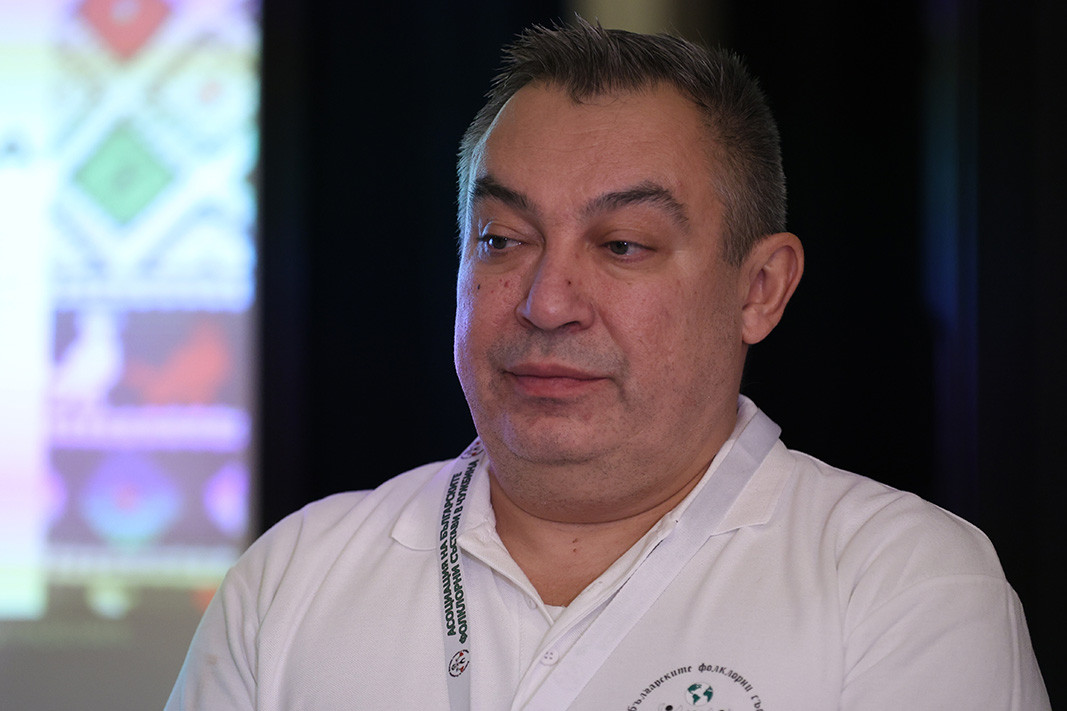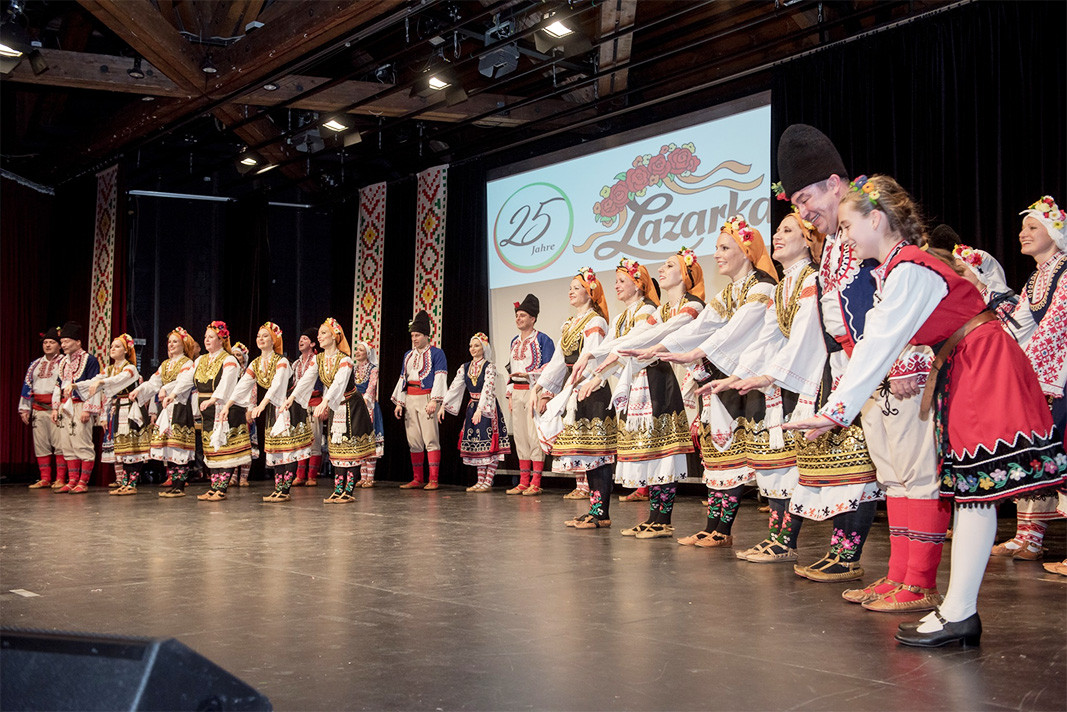Like many European countries, Bulgaria has hundreds of thousands of citizens who have opted to live outside the country. We can roughly divide them into two types - old and new emigration. The reasons for going abroad are, of course, many and varied. Some of those who managed to emigrate before 1989 did so at the risk of their lives and in search of a new beginning behind the Iron Curtain. The next wave of emigration began months after the fall of the Berlin Wall, again driven by the hope of a better life elsewhere, away from the fledgling Bulgarian transition of those years. The country's accession to the European Union in 2007 also saw a wave of Bulgarians settling abroad - some to find better jobs, others to study at European universities and build a life outside their homeland.
 Over the past three decades, Bulgarians abroad have been actively creating their own associations, Sunday schools and dance groups, through which they preserve their mother tongue, culture and traditions. One of them is the association "Lazarka" - Munich, founded in 1991. A dance ensemble of the same name was also set up, led by Plamen Petkov. After coming to Germany in 2000 "by a fluke", the software expert won a green card under a German programme aimed at recruiting computer specialists from all over the world, and decided to stay in the country. A German colleague told him about the Bulgarian Folklore Ensemble. Since then, Plamen has been an integral part of it for 23 years and its director for 13 years. In an interview with Radio Bulgaria, Plamen Petkov looks back on the history of the Bulgarian community in the Bavarian capital.:
Over the past three decades, Bulgarians abroad have been actively creating their own associations, Sunday schools and dance groups, through which they preserve their mother tongue, culture and traditions. One of them is the association "Lazarka" - Munich, founded in 1991. A dance ensemble of the same name was also set up, led by Plamen Petkov. After coming to Germany in 2000 "by a fluke", the software expert won a green card under a German programme aimed at recruiting computer specialists from all over the world, and decided to stay in the country. A German colleague told him about the Bulgarian Folklore Ensemble. Since then, Plamen has been an integral part of it for 23 years and its director for 13 years. In an interview with Radio Bulgaria, Plamen Petkov looks back on the history of the Bulgarian community in the Bavarian capital.:
 "It is a folk ensemble that was founded in the 1990s as a non-profit organisation. It was created by local Munich citizens and a Bulgarian choreographer, Belcho Stanev. Until 2010, Germans made up the majority of the ensemble. As more and more Bulgarians came to Munich to work or study after 2007, a Bulgarian community was created and there was continuity from the German dancers to the Bulgarian performers. At the moment the ensemble is all Bulgarian, but this year the children of the Germans who founded it have started to return".
"It is a folk ensemble that was founded in the 1990s as a non-profit organisation. It was created by local Munich citizens and a Bulgarian choreographer, Belcho Stanev. Until 2010, Germans made up the majority of the ensemble. As more and more Bulgarians came to Munich to work or study after 2007, a Bulgarian community was created and there was continuity from the German dancers to the Bulgarian performers. At the moment the ensemble is all Bulgarian, but this year the children of the Germans who founded it have started to return".
 The Germans in the region owe their love and devotion to Bulgarian folklore to Belcho Stanev, who created the Bulgarian Ensemble Varna and was its director from 1960 to 1995.
The Germans in the region owe their love and devotion to Bulgarian folklore to Belcho Stanev, who created the Bulgarian Ensemble Varna and was its director from 1960 to 1995.
"I start this story one step further back - with the fall of the Iron Curtain, after which Eastern Europe opened up to the Western world," Petkov explains. "It is in the Balkans that foreigners find interesting dances, rhythms and music, but our Bulgarian dances are the most diverse and attract the most attention, and our dance teachers have the power to spark the curiosity and love for our folklore. Belcho Stanev, the choreographer of the Varna ensemble, who has been giving seminars all over Germany since the 1990s, plays a big role here. He shows and explains every detail of Bulgarian folklore in a very understandable and interesting way, so that people are eager to dance our dances".
 Today, 35 people make up the main line-up of the Lazarka ensemble in Munich. Another 100 take part in the group's dance classes, where they train in beginner or advanced groups. Lazarka dancers regularly present Bulgarian folk traditions at various cultural diversity events in Germany and Europe. Of course, their extensive dance programme is an integral part of the cultural life of the Bulgarian community in Bavaria.
Today, 35 people make up the main line-up of the Lazarka ensemble in Munich. Another 100 take part in the group's dance classes, where they train in beginner or advanced groups. Lazarka dancers regularly present Bulgarian folk traditions at various cultural diversity events in Germany and Europe. Of course, their extensive dance programme is an integral part of the cultural life of the Bulgarian community in Bavaria.
 Lazarka artists regularly present Bulgarian folk traditions at cultural diversity events in Germany and Europe. Of course, their rich dance repertoire is an integral part of the cultural life of the Bulgarian community in Bavaria.
Lazarka artists regularly present Bulgarian folk traditions at cultural diversity events in Germany and Europe. Of course, their rich dance repertoire is an integral part of the cultural life of the Bulgarian community in Bavaria.
"We are building bridges - says Plamen Petkov and sends a wish to all those who are engaged in Bulgarian folklore around the world: - Let every Bulgarian dance group feel like a builder of this bridge, of the ties between Bulgaria and the country, the city in which it is located!
For 100 years, foresters in Bulgaria have been organizing Forest Week. A concert entitled “A century of eternity” on 7 April will give the official start to the initiative dedicated to the planet’s lungs. And though it has been a century since..
The eagerly-awaited Tulip Parade at the University Botanical Garden in Balchik is at its peak. This year’s parade includes more than 45,000 bulbs, and 27 varieties that are new to the Garden, among them Tulipa "Carnaval de Nice, which combines..
In 2024, Bulgaria has 15,737 foreign students, making up 8.6% of all current students in the country. By comparison, this share has doubled over the past decade. This data comes from NACID , updated annually in the Bulgarian University Ranking..
In 2024, Bulgaria has 15,737 foreign students, making up 8.6% of all current students in the country. By comparison, this share has doubled over the..
The eagerly-awaited Tulip Parade at the University Botanical Garden in Balchik is at its peak. This year’s parade includes more than 45,000 bulbs,..
Divers will clean the seabed around the port of Sozopol today, reports BTA. "Since 2018, we have been doing the cleaning, completely voluntarily, with..

+359 2 9336 661
